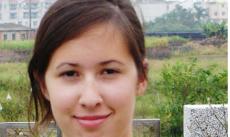Kindness sparks ‘respect and affection’ for culture

Hold on
Though spoken messages may have trouble crossing language barriers, acts of kindness do not.
As a foreigner coming to Taiwan, I packed an arsenal of expectations. I anticipated the miscommunication, the unfamiliar food and the stares from locals. I was even forewarned about the non-western toilets and the undrinkable tap water. The unconditional kindness I have been shown since my arrival, however, was not something I was prepared for.
During the first days here, staff members from the Nan-Jeon Institute of Technology escorted my boyfriend, Jake Adams, and me around the local area.
They showed us where to eat, do laundry and even took us to the local Carrefour (a foreign version of Wal-Mart) to buy whatever we needed.
But it was while visiting the home of Shengkai Su, professor of business English, that I began to realize the accommodating nature of the locals.
“If you see something in my house that you need, take it,” he said. “If you need a fork, a lamp, a pan, don’t hesitate to, just take it.”
Since those first few days, I have quickly learned the Chinese phrase for “thank you,” as I find myself using it all the time.
Once, after leaving a restaurant, Jake and I found our scooter seat wet from the rain. One of the restaurant workers rushed outside, offering us a handful of napkins to dry the seat.
Another time, Jake and I got lost while looking for one of the weekly night markets. Tired and soaked from the rain, we finally asked a man for directions.
After a few minutes of conversation, he simply said, “follow me,” and dropped what he was doing to take us to the market himself.
These simple acts of kindness have only increased my growing respect and affection for the people of Taiwan. They are the kind of people who don’t need a reason to help, and who drop what they’re doing to offer aid. Even to me, a foreigner and stranger.
Though I didn’t take anything tangible from Su’s home, I took with me appreciation and respect for his character. Besides forks, napkins and directions, he and these strangers offer something far more important, their kindness.
[Editor’s note: Becky Husky is spending this academic year studying in Taiwan. She is a senior mass communication major at Missouri Southern.]
Your donation will support the student journalists of Missouri Southern State University. Your contribution will allow us to purchase equipment and cover our annual website hosting costs.



























